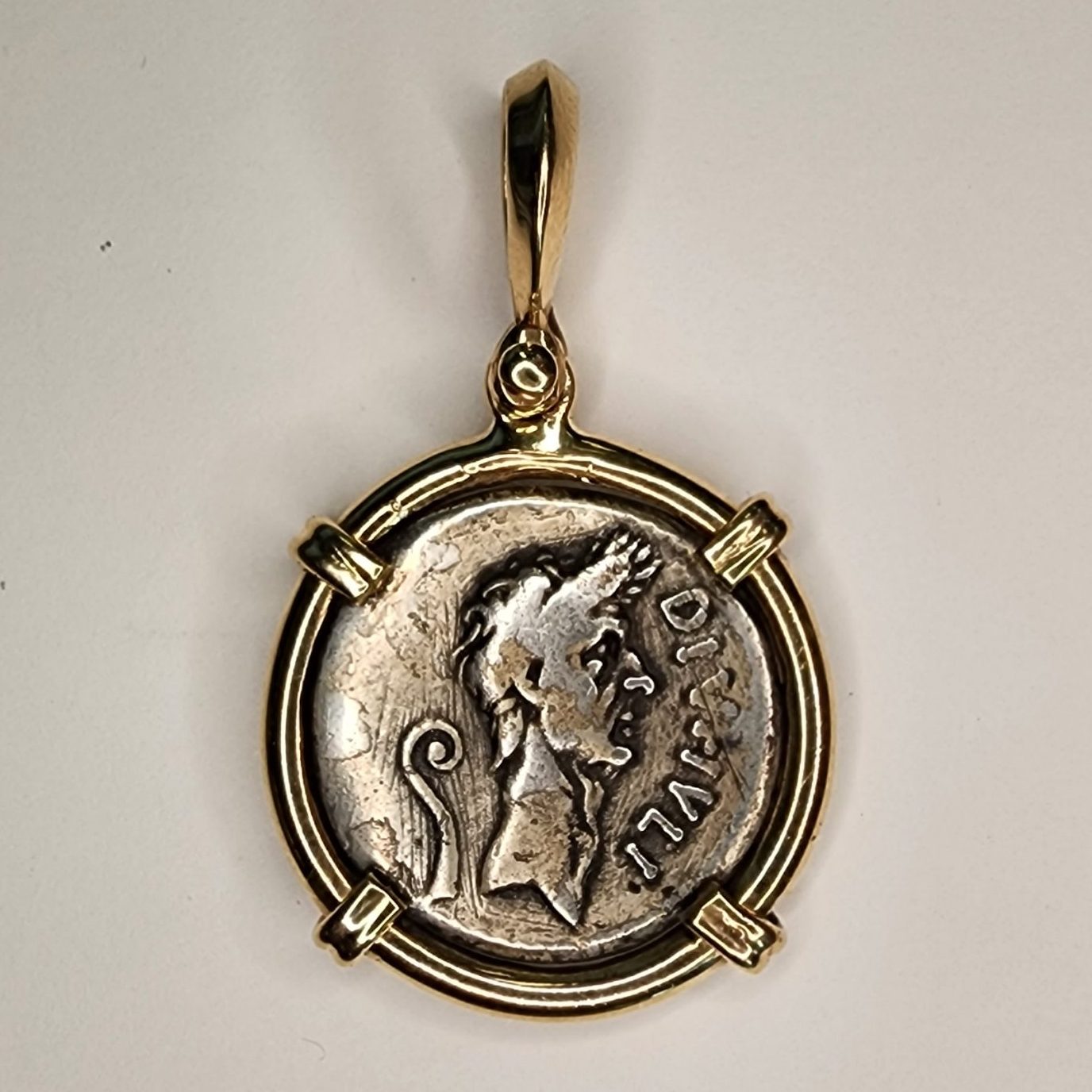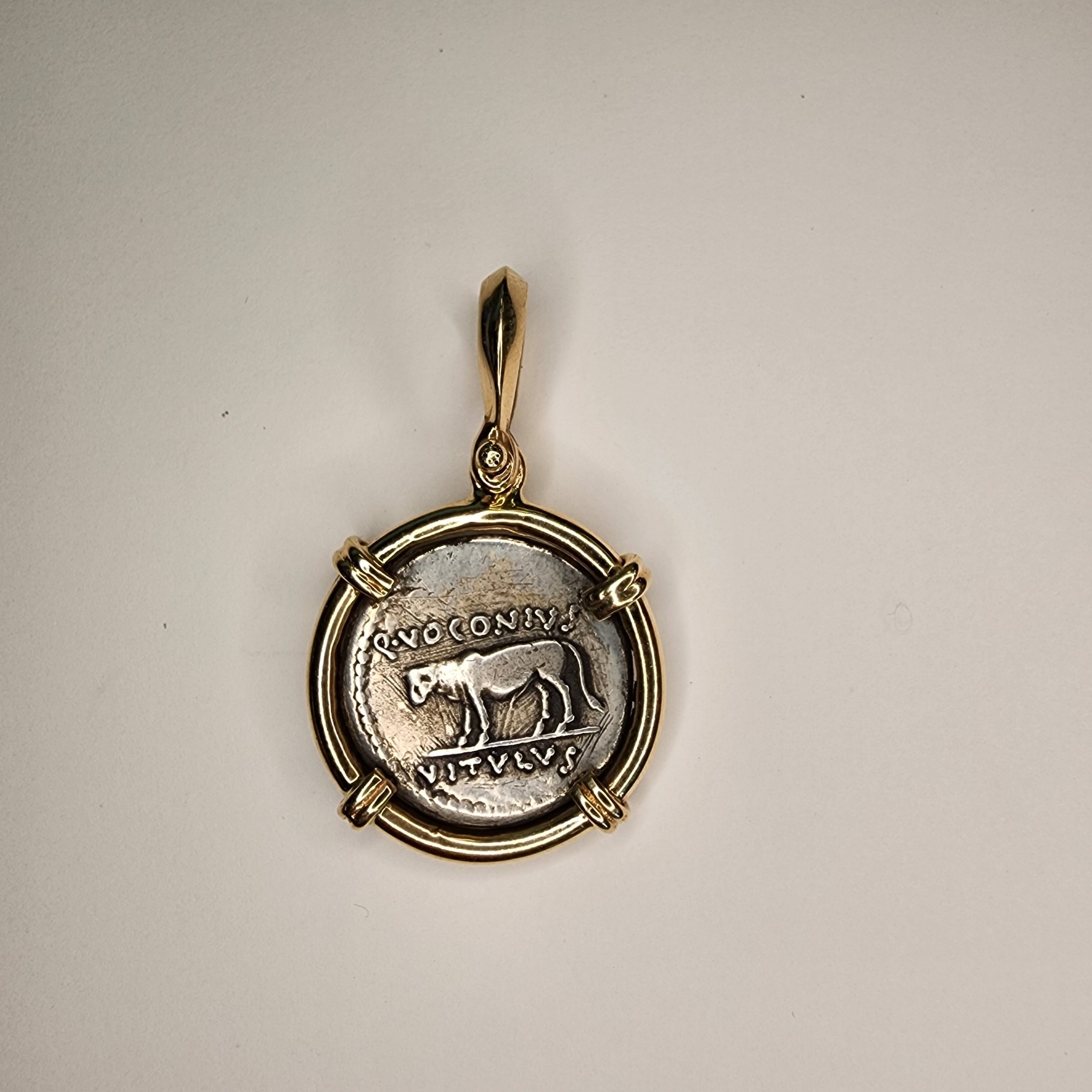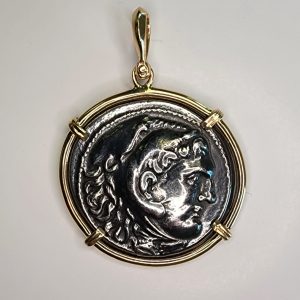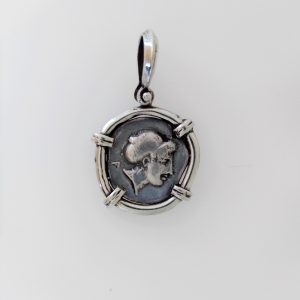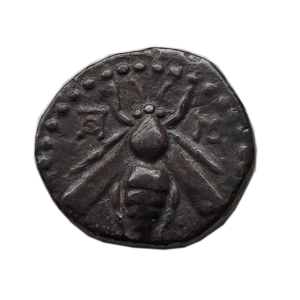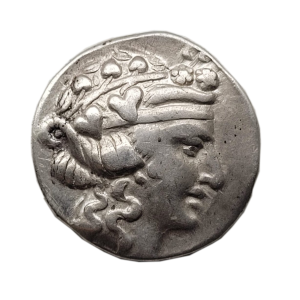Description
This coin is a Roman Imperial silver (AR) denarius, minted circa 40 BCE. The obverse of the coin depicts the laureate head of Julius Caesar right with a lituus behind and the text DIVI IVLI to the right. The reverse of the coin depicts a calf left, with Q VOCONIVS above and VITVLVS below.
This posthumous coin was struck by the moneyer Quintus Voconius Vitulus. This coin is dedicated to Julius Caesar who was assassinated in 44 BCE. Caesar was deified after a senate resolution in 42 BCE and this is shown in the title to the right of his bust, which means “The Divine Julius”. The lituus behind his bust shows that he was a member of the priestly augurs. The lituus was a crooked wand used as a cult instrument in ancient Roman religion of augurs to mark out a ritual space in the sky. On the reverse of the coin, the standing calf is a personal reference to the moneyer, being a punning allusion to Vitulus, which literally means calf.

